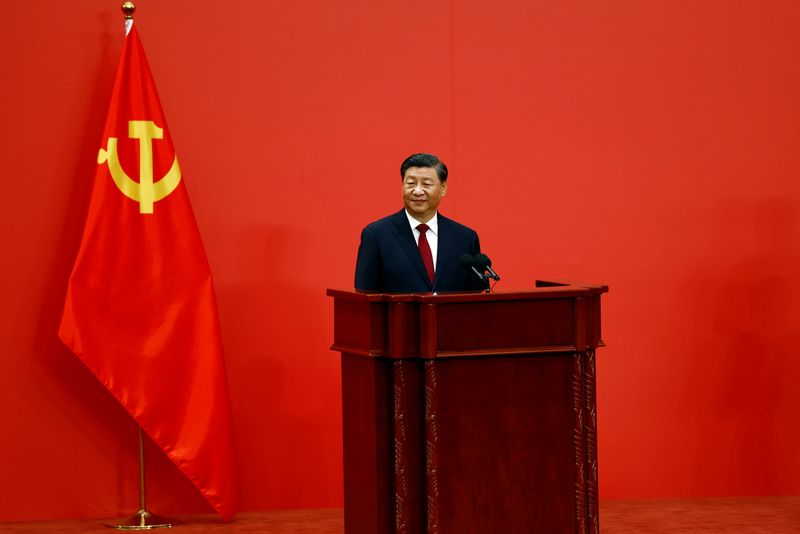HONG KONG (Reuters) - China's leadership pledged at a key Communist Party meeting this week to support the economy through a "tortuous" post-pandemic recovery, but offered very little detail on specific measures, causing mixed feelings among investors and economists.
ADDITIONAL STIMULUS ALMOST GUARANTEES CHINA WILL REACH ITS 2023 GROWTH TARGET. SO WHY ARE MANY ECONOMISTS STILL UNDERWHELMED?
The goal of growing at about 5% this year was always seen as easy to reach due to favourable base effects from one of China's worst years in half a century. Also, that level looks less impressive given China invests about 40% of its GDP per year - twice what the United States invests.
After a strong start of the year since COVID-19 restrictions were removed, the world's second largest economy barely grew in April-June, sparking worries it may be entering a new era of much slower growth and even Japan-like "lost decades" of stagnation.
WHAT ARE THE KEY CONCERNS ABOUT CHINA'S ECONOMY?
The main worry is the slowdown is more structural than cyclical and requires significant political will to change course on policies that have proven spectacularly successful for decades but now generate more debt than growth.
Accounting for about a quarter of economic activity, the overextended property sector can no longer act as a key driver of growth, but allowing the bubble to deflate rapidly could destabilise the financial sector and the real economy.
Another long-standing structural imbalance is China's household consumption, which remains among the smallest contributors to GDP in the world. Fixing it, economists say, requires transfers to the household sector.
Options include government-funded consumer vouchers, significant tax cuts, encouraging faster wage growth, building a social safety net with higher pensions, unemployment benefits and better, and more widely available public services.
No such steps were flagged in the politburo readout.
They would require indebted local governments to renounce revenue and increase expenditure, forcing the national government in Beijing, which has spent decades centralising power, to transfer resources to cities and provinces and take on some of their debts.
Encouraging higher wages requires unleashing the private sector from tight Communist Party controls, as well as boosting workers' bargaining power. It would also erode the export competitiveness of a sprawling manufacturing sector.
Another headache for the Communist Party is youth unemployment surpassing 20%. The promise of prosperity has encouraged younger generations to study for advanced economy jobs, rather than the lower-end work available in the industrial and services sectors.
The onus is on the private sector to provide those jobs, but many businesses lack confidence after years of crackdowns on the tech, financial and other industries.
Levelling the playing field between the private and state sectors ultimately requires rule of law, analysts say. Chinese courts answer to the Communist Party.
WHAT WOULD HAVE ECONOMISTS LIKED TO SEE IN THE POLITBURO READOUT?
Economists weren't expecting discussion of any radical shifts but looked for signs Chinese leaders were acknowledging the enormity of the task ahead and clues on their longer-term thinking, as well as more concrete details about what is in the pipeline for the near term.
While they took the politburo's remarks about the importance of the private sector as encouraging, economists were underwhelmed that the general proposals on how to boost consumption seemed nothing more than further plans to subsidise the autos and electronic appliances industries.
The basket of measures to deal with local government debt flagged in the politburo readout was also welcomed by economists, but the urgency of the situation left analysts wanting for much more concrete details.
Additionally, any investor expecting big-bang spending in response to underwhelming growth this year will have been disappointed.
WHAT HAPPENS NEXT?
Various government agencies need to turn the politburo's policy direction into reality, and announce specific measures in the coming weeks and months.
That is what markets will look for to determine how well China is managing the risks it faces. In particular, investors are keen to see the package of measures on the property sector and on local government debt.
More profound structural reforms will have to wait until a key Party conference in December.
